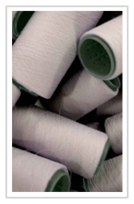
Credit: Valentina Gurney
In the wake of the tragic deaths of over 1,100 factory workers in Bangladesh, apparel companies are feeling a renewed urgency to eradicate human rights abuses from their value chains.
A new report by the Responsible Sourcing Network, a project of As You Sow, provides guidance for companies seeking to ensure their value chains are free of cotton picked with forced labor.
To the Spinner: Forging a Chain to Responsible Cotton Sourcing lays out the steps brands can take to guarantee they are not sourcing cotton produced in Uzbekistan, where the government forces its children to pick cotton for its own profit. CNN recently profiled forced labor in the Uzbek cotton sector, which has been in place since the Soviet era.
The report identifies cotton spinners as the crucial link in a slavery-free value chain since they are the purchasers of cotton as a raw commodity. A spinner can easily identify and eliminate Uzbek cotton and share transportation and other documentation on the origin of its ethical cotton with its customers. The 131 brands that have signed RSN’s “Cotton Pledge” are looking for this type of evidence to support their commitment to not use cotton yarn or cloth produced with salve labor.
Sample documentation containing country of origin, insights from visits to spinning mills, and a comparison of traceability tools currently available to brands are all included in the report.
To the Spinner follows From the Field: Travels of Uzbek Cotton through the Value Chain, which describes the characteristics of Uzbek cotton, details the risks associated with this cotton, and outlines what brands can do to avoid it.











